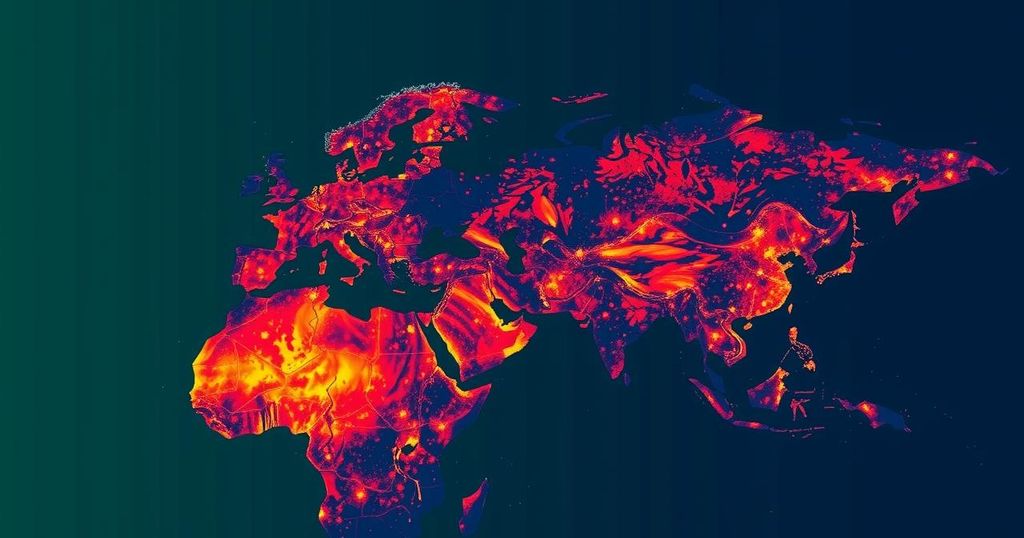COP29 is struggling to maintain focus amidst global crises, particularly the war in Gaza, which climate groups allege is linked to the oil industry. Key discussions on financial commitments are overshadowed, leading to concerns that the conference is losing its effectiveness as geopolitical issues distract from climate priorities.
As the 29th United Nations Climate Change Conference (COP29) progresses, essential discussions on climate policy are overshadowed by global crises. The ongoing conflicts in the Middle East and political turmoil in Europe, accompanied by significant events such as the potential re-election of former President Donald Trump, distract from key negotiations. Climate advocacy groups have voiced concerns about the oil industry’s influence, drawing connections between fossil fuel dependence and the ongoing war in Gaza. They argue that the gas industry’s economic interests may exacerbate geopolitical tensions, hindering collective efforts to address climate change and secure necessary funding for climate action. The first week of COP29 has witnessed minimal tangible agreements, raising alarms about the future of climate initiatives. Without significant progress on financial commitments and international collaboration, the conference risks being seen as ineffective in delivering real solutions to the climate crisis. Daved Lehrer from the Arava Institute for Environmental Studies shared insights into the implications of current events, stressing that “distractions were bigger than deals.” This highlights the urgent need for leaders to pivot focus back towards climate commitments amidst pressing global issues.
COP29 is a vital platform for nations to negotiate and advance strategies to combat climate change. The conference gathers global leaders, scientists, and activists to deliberate on policies and funding aimed at mitigating climate impacts. This year’s discussions are particularly critical given the interlinkages between geopolitical strife and environmental concerns. The ongoing wars could significantly affect international cooperation necessary for addressing climate change, complicating commitments made in earlier conferences. Social and political upheavals can derail attention from climate issues if not managed effectively, insisting on the necessity for intertwined dialogue between environmental sustainability and geopolitical stability.
In summary, as COP29 unfolds, it faces unique challenges amid geopolitical distractions that could potentially undermine its objectives. The climate crisis remains urgent, but the current global landscape, with wars and political shifts, complicates the negotiation process. Furthermore, the link between fossil fuel economies and international conflict underscores the vital need for integrated approaches to both climate action and peace-building efforts. Ongoing dialogues and actions must refocus on long-term sustainability objectives, ensuring that climate policies take precedence over immediate distractions.
Original Source: www.france24.com







